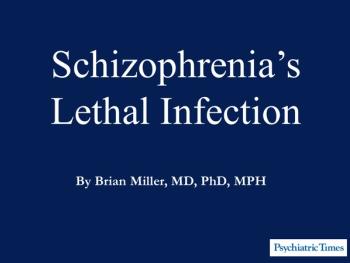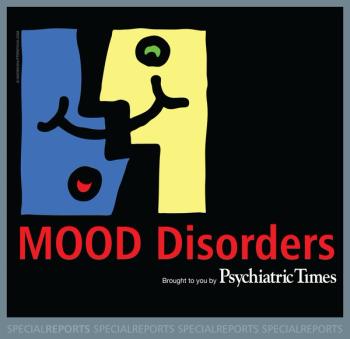
Are you aware of this newly identified risk factor for suicide?

Are you aware of this newly identified risk factor for suicide?

Useful information about mood disorders in 3 key areas-bipolar disorder, comorbid ADHD and depression, and suicide risk.

Here: a brief review of the literature on postvention efforts; the effects on the victim’s caregivers; and a guide to resources to help manage survivors’ and caregivers’ emotions and dread.

One would easily imagine from a recent TV report that psychiatrically ill and suicidal students are routinely being shipped off to hospitals and removed from their colleges without due process or discussion.

Should doctors be legally allowed to assist terminally ill patients in committing suicide?

After leaving active duty, when are veterans at greatest for suicide?

We are about to publish the winning essays from our first-ever writer's contest. We hope you'll find them as moving and memorable as we did.

A growing body of research has given us strategies at population, community, and clinical levels that can be put into practice. Details here.

In this study, about 70% of patients who completed suicide had recently sought treatment. Will you recognize those at risk?

What are the effects on the clinician who loses a patient? How to respond?

How radically do we want to alter the physician’s traditional ethical obligations to the most vulnerable of patients?

Clinicians have a powerful voice that can be used to address cyberbullying, improve campus climate, and support a positive undergraduate experience.

After a campus suicide, who is at increased risk of suicide in the near future? The answer might surprise you (or not).

An exploration topics that are relevant to most clinicians who work with patients with personality disorders.

Personality disorders are arguably the most challenging for psychiatrists because they are difficult to diagnose and frequently coexist with psychotic, affective, and anxiety disorders.

Suicide contagion and clusters are more likely among young people in contained communities such as college campuses.

Could right-to-die laws result in people requesting death, even in the face of of potentially treatable health problems?

What is the most common method of suicide in the US?

The challenges in providing mental health care to the college community are significant. Here's a brief look at the issues.

Psychiatrists can provide significant support and insight to patients who are now coming to campus with a wide array of mental health challenges.

On the heavy cost of savage warfare and its aftermath.

Although college students are in many ways similar to any patient in their age group, their environment and stressors differ in significant ways. The authors identify issues to consider in assessing and managing suicidality in this population.

To honor him beyond his professional skills, let us learn some important medical lessons from the life and death of Robin Williams.

Psychiatrists should not be afraid to assess parenting issues and other stressors when treating depressed or psychotic parents of young children.

All psychiatrists know the risk factors for suicide. Among the newest modifiable risk factors to join the list are insomnia and nightmares.